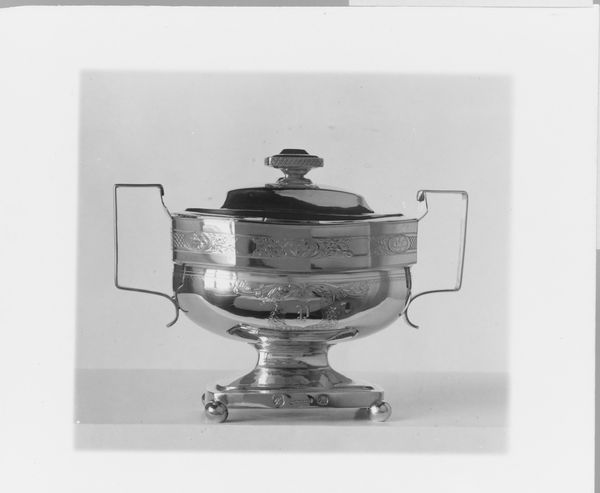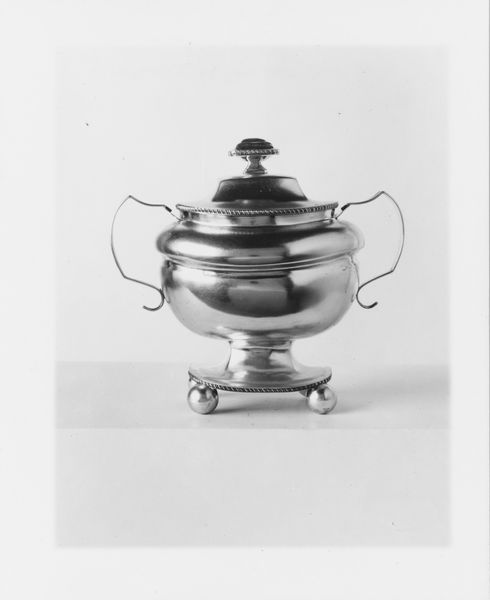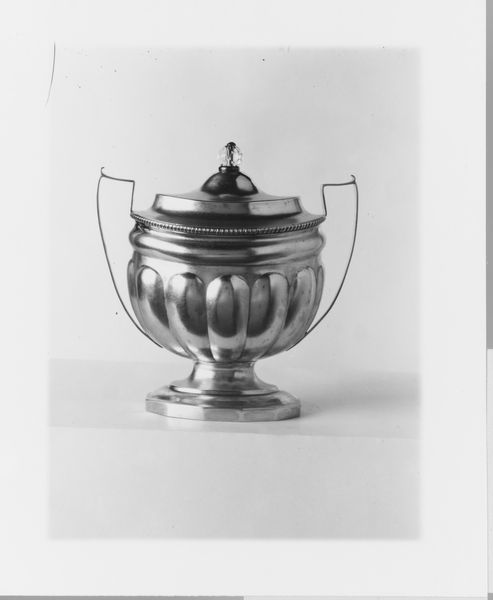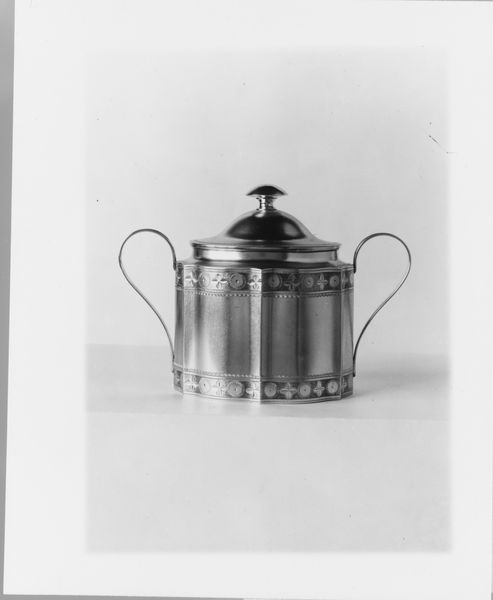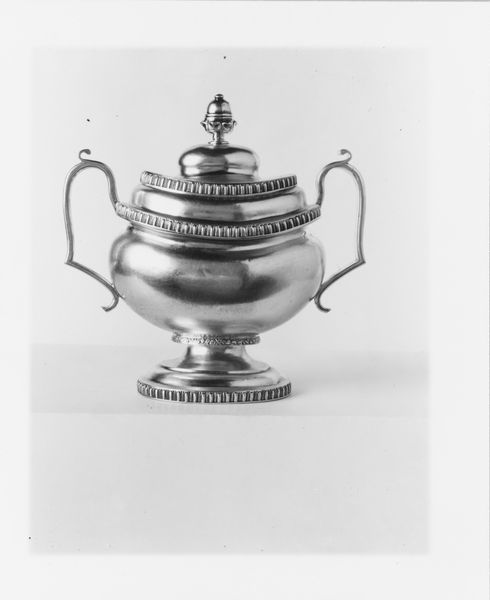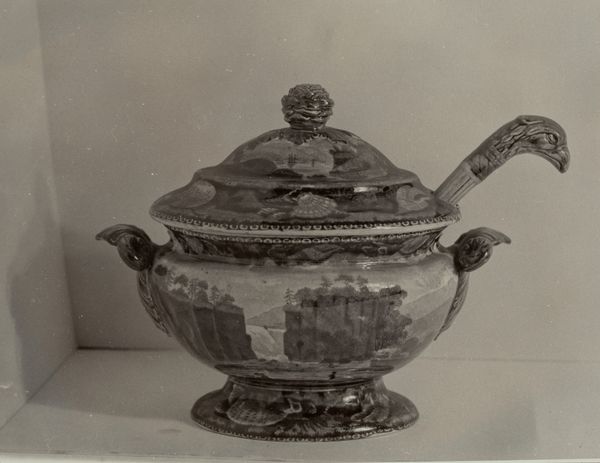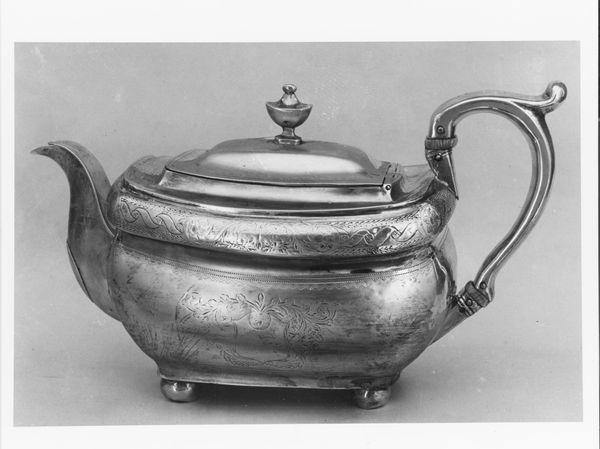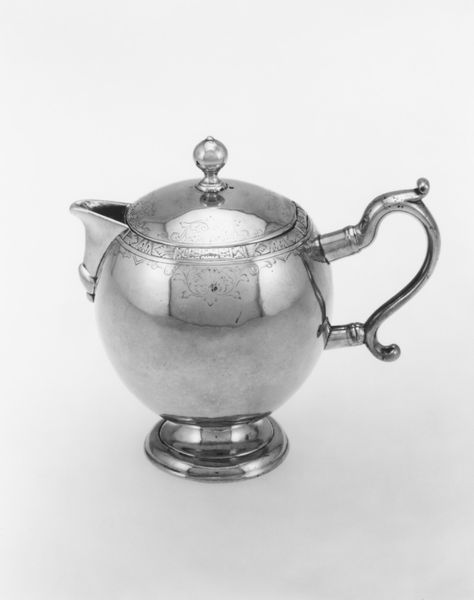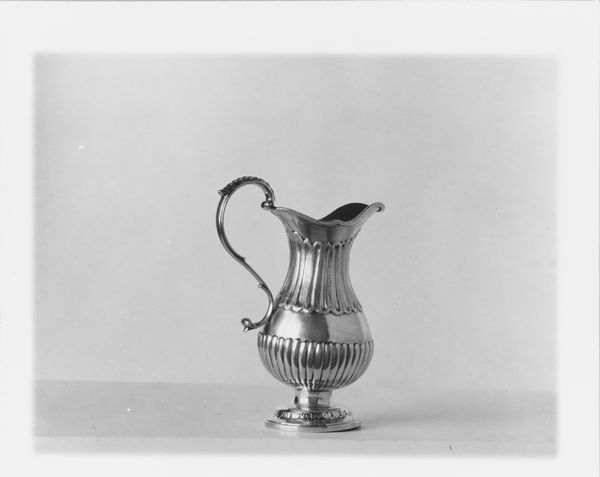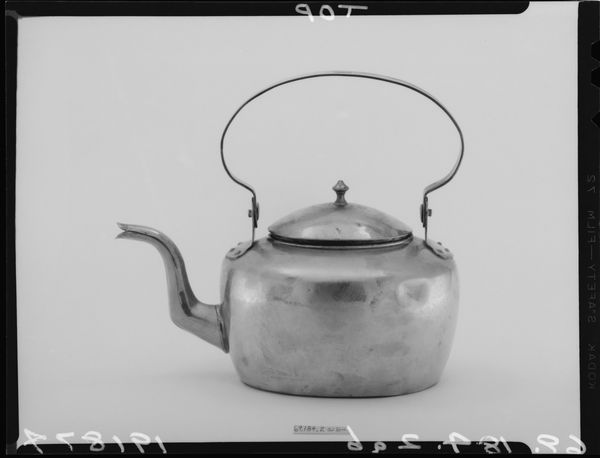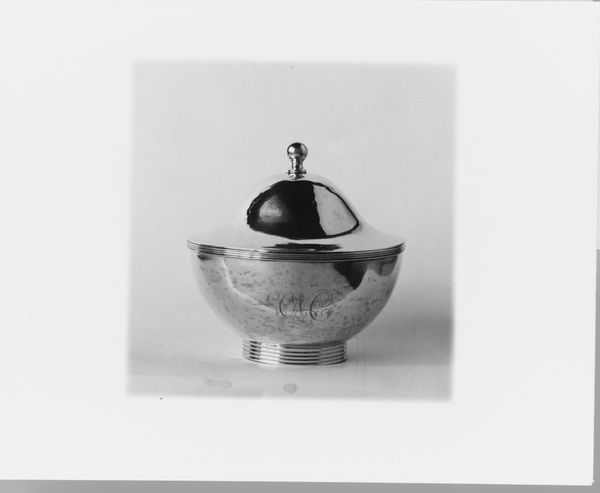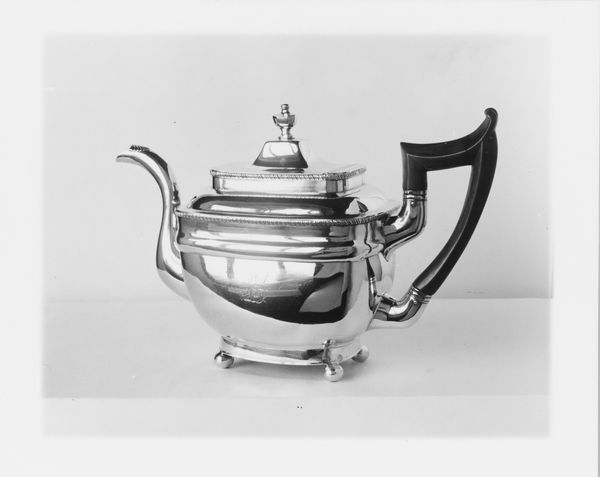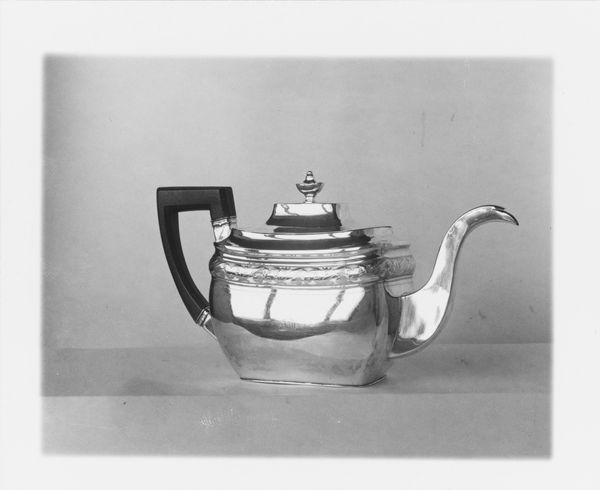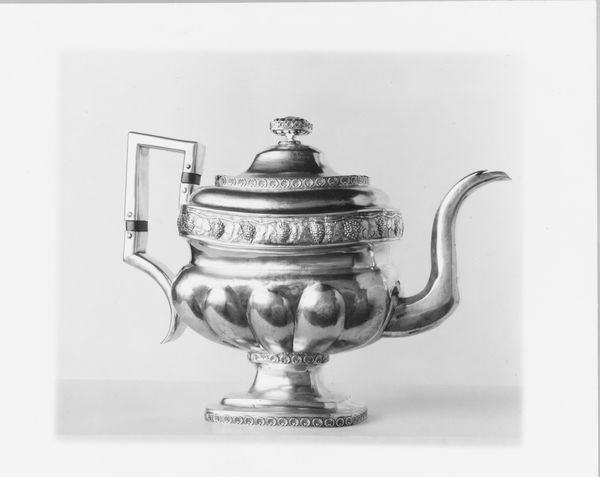
silver, photography
#
silver
#
photography
#
black and white
#
monochrome
#
decorative-art
#
monochrome
Dimensions: Overall: 6 3/16 x 8 7/8 x 3 3/4 in. (15.7 x 22.5 x 9.5 cm); 14 oz. 12 dwt. (454.1 g) Base: 3 15/16 x 2 9/16 in. (10 x 6.5 cm) Body: H. 4 7/8 in. (12.4 cm); 9 oz. 17 dwt. (306 g) Cover: 2 3/8 x 5 5/8 x 3 9/16 in. (6 x 14.3 x 9 cm); 4 oz. 15 dwt. (148.1 g)
Copyright: Public Domain
This is a silver sugar bowl, made by William Forbes, a New York silversmith active in the mid-19th century. Silver is a precious material, valued for its luster and malleability, but here it's more than just decorative. Consider the context: refined sugar was a highly desirable commodity, produced by enslaved people on Caribbean plantations. This bowl would have been a signifier of wealth and status, a display of participation in a global economic system built on exploitation. The silversmith's labor, transforming raw material into a refined object, is part of that story. The bowl's design, with its delicate chasing around the rim, speaks to the hand skills involved in its making. But it also hints at the complex relationship between craft and commerce, luxury and labor, that defined the 19th century. Seeing this object, it's hard not to consider the bitter history that sweetens every spoonful.
Comments
No comments
Be the first to comment and join the conversation on the ultimate creative platform.
